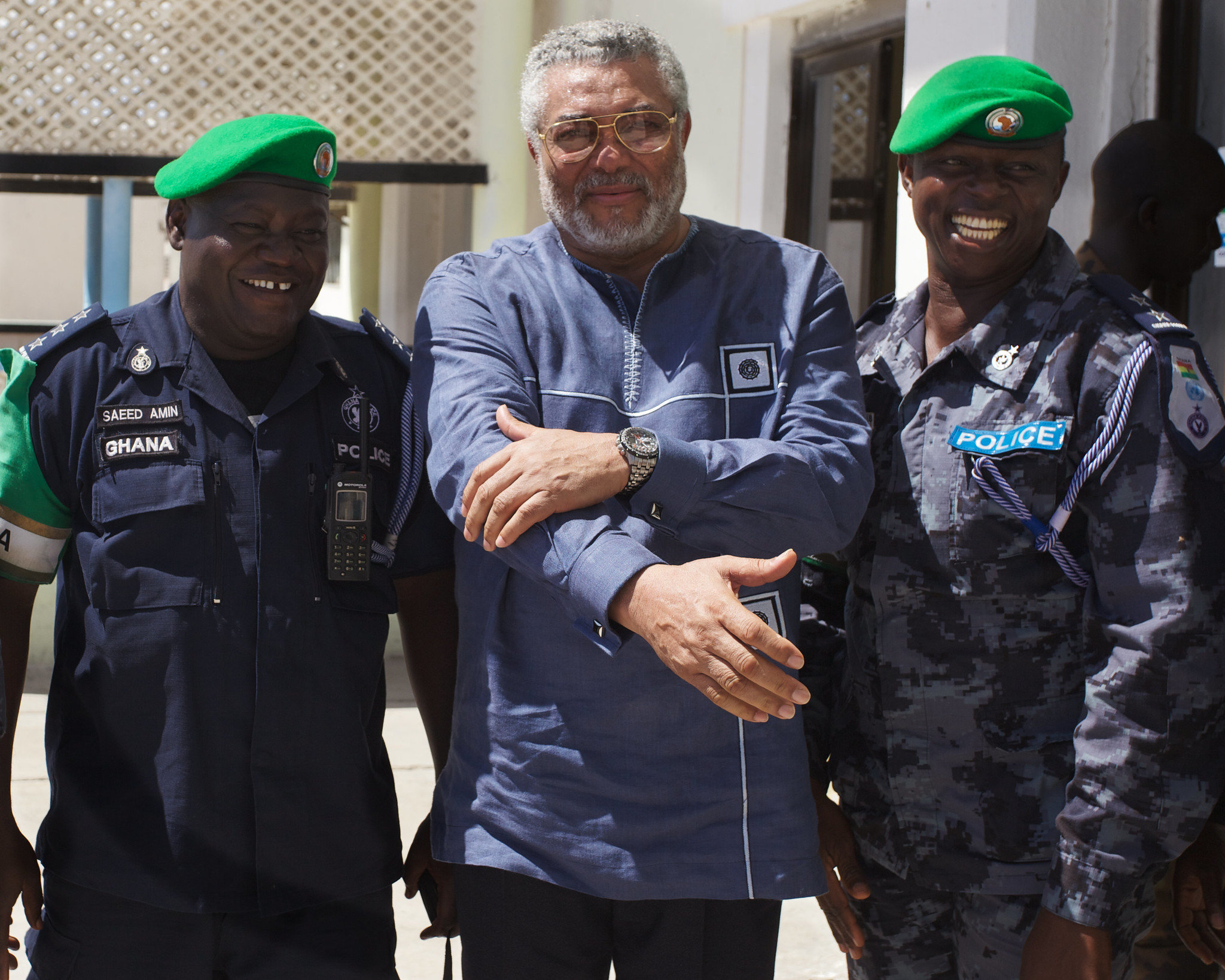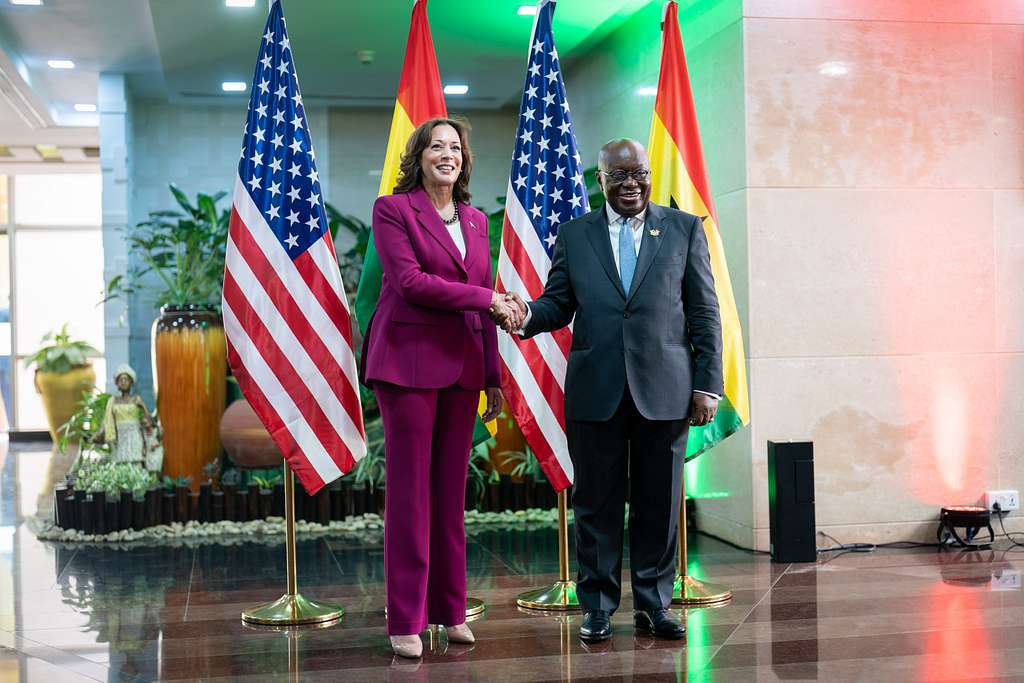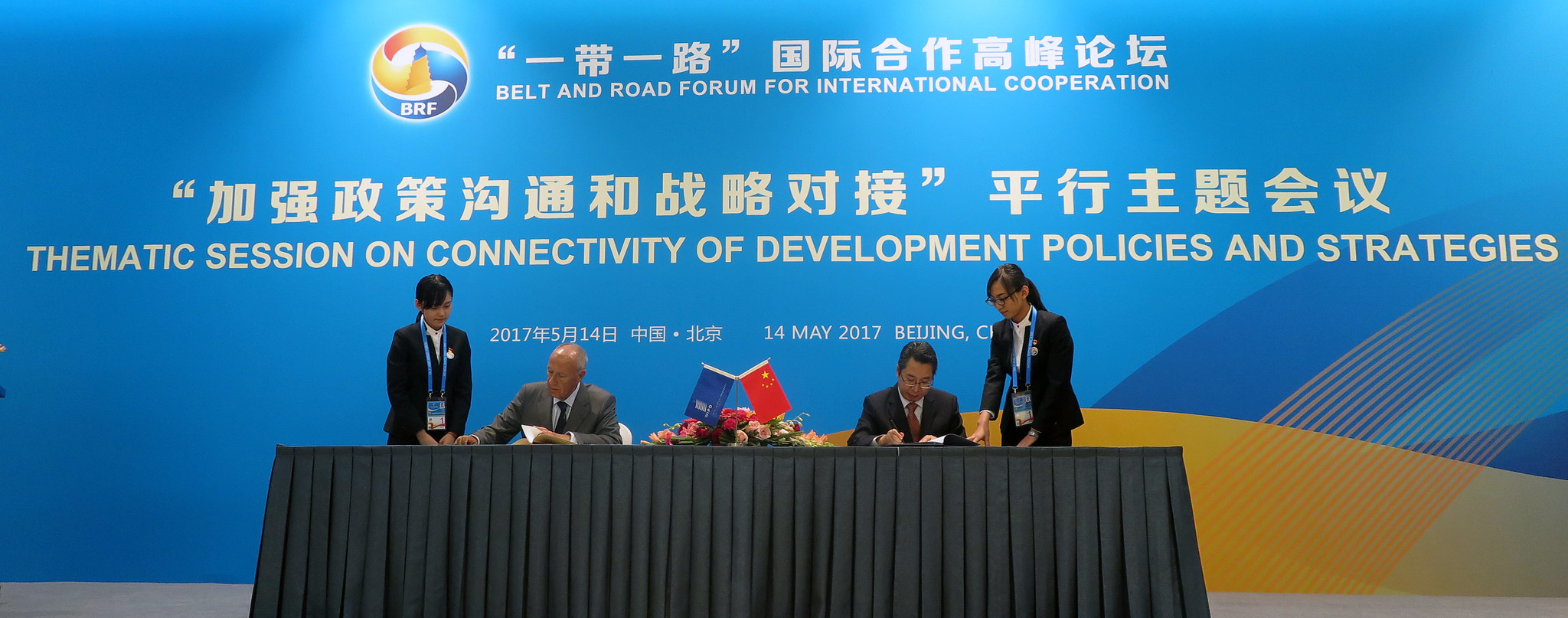Ghana marked 30 years of democratic rule on 7 January 2023. Ghanaians are justifiably proud of their country’s three decades of democratic governance, while also aware that Ghana faces challenges to its democratic longevity, write Jeffrey Haynes and Felix Kumah-Abiwu.
Ghana’s political landscape prior to the constitutional era
1982 began with a military coup that was integral to the country’s political future. Led by Flight-Lieutenant Jerry John Rawlings, the Provisional National Defence Council (PNDC) adopted military-based radical populism that initially insulated the regime from civil society demands for an elected civilian government. But in the decade following the coup, Ghana suffered abuses of political rights and civil liberties.
Sustained authoritarianism enabled the PNDC to pursue economically draconian policies to rebuild Ghana’s sagging economy, made possible by the support of Western donors, notably the International Monetary Fund. Although the PNDC’s economic recovery programme led to macro-economic improvements, Rawlings and the PNDC suffered a legitimacy crisis. Many of the regime’s early supporters became disenchanted and popular support for the regime declined.
Rawlings-style populism temporarily strengthened the Ghanaian state, enabling the government to cope with certain problems created by economic scarcity, but without making it clear what was the political way forward. Elements of civil society, notably the educated middle class organised in so-called ‘professional’ organisations, unsuccessfully demanded a return to constitutional rule. But over time, political opposition coalesced into an anti-PNDC movement, with the aim of a return to multi-party democracy.
Transition to democracy
Following increasing popular pressure, the PNDC acceded to demands for a return to multi-party democracy. In the presidential election of 1992, Rawlings was elected by a comfortable margin. The opposition cried foul, claiming that the ballot was rigged. Despite this, Rawlings was re-elected president in 1996, which the opposition accepted was a relatively free and fair election. Rawlings’ new political party, the National Democratic Congress (NDC), also won parliamentary elections in both 1992 and 1996 (although the main opposition parties boycotted the 1992 parliamentary elections claiming that they would not be fair, following the allegedly ‘rigged’ presidential election).
Given that Ghana experienced a decade of military-backed, authoritarian rule under the PNDC, it is surprising that a decisive shift to multi-party democracy was achieved under Rawlings’ leadership. He frequently expressed his disdain for ‘Western-style’ multi-party democracy, but when it became clear that most Ghanaians preferred it, Rawlings went with the flow and established the NDC, which for a decade was Ghana’s paramount political force.
Assessment of Ghana’s three decades of democratic rule
Three decades of consistent democratic governance is one of Ghana’s major post-independence achievements. Donna Charles of the United States Institute for Peace has noted that Ghana is a “democratic bulwark in a region rife with coups and instability.” Democracy in Ghana is important not only – and obviously – for the country but also as an exemplar for the West African region more generally.
Although the electoral process has faced periodic claims of unfairness from parties which lose the elections, Ghana has hosted eight free and fair multi-party elections. As mentioned earlier, the main opposition parties boycotted the 1992 parliamentary elections claiming unfairness. At this time, the PNDC transformed into the NDC and proceeded to dominate politics for several years. This might explain why some see the 1990s as a “transition without change.” Notwithstanding, Ghana’s repeated multi-party elections, even when flawed, deserve credit for sustaining the democratic process. Ghana’s political processes traditionally focus on the dominance of one of the two major parties. This is not unusual in Africa. Staffan Lindberg’s study argues that Ghana’s experience is rather typical of other emerging democracies across Africa, with electoral outcomes often about the peaceful transfer of power between two major parties.
Ghana’s Electoral Commission (EC) has also performed well in the management of general elections since 1992. While the level of trust and respect for the EC appears to have eroded in recent years given the needless removal of the EC Chairperson and her two deputies in 2018, it is hoped that the EC will regain the trust of Ghanaians. Ghana’s judiciary has also done its best in the past 30 years to maintain a democratic culture. For example, while the New Patriotic Party in (2012) and the NDC in 2020 were not pleased with the Supreme Court’s decision on their respective petitions of the presidential results, the fact that they used the judicial process to resolve post-election conflicts rather than resorting to the use of electoral violence to settle disputes is positive.
In terms of a free press, political participation, and the rule of law, Ghana’s scores on these democratic elements are mixed. Participation in the political process by citizens keeps improving as does the political involvement of civil society groups. Respect for due process or the rule of law is also improving. Press freedom started on a turbulent note in the 1990s, but it has chalked successes since 1992. The repeal of both the criminal libel law and the law that granted the president the power to ban news outlets are significant achievements. However, the recent cases where journalists are threatened, attacked, abducted, or killed are not the best news for Ghana’s democratic image. It is crucial for Ghanaians, especially the political class, to respect the freedom of the media as enshrined in the 1992 Constitution so they can perform their constitutional duties by exposing corruption, and demand accountability from political leaders.
Other institutions (i.e., executive and legislature), have made progress since 1992, but there are fractures within these institutions that need to be addressed. For example, while parliament has not only evolved in increasing the number of parliamentary seats (currently 275) to represent better popular interests, the institution is widely regarded as both weak and ineffective in dealing with national matters. For observers, the perception of parliament as weak is driven by the 1992 Constitution which empowers the President to select most ministers from Parliament. The provision undermines the independence and the oversight role of the legislature hence the call for the amendment of the provision.
The Executive branch has also done its best in upholding the 1992 Constitution. Policies have been initiated to strengthen democratic values and governance practices in the development of the country. However, issues of economic mismanagement, notably cases of corruption in the public sector are problematic for the country’s continued democratic position.
Ghana’s 30 years of democratic rule is a major achievement in a region that has seen widespread re-emergence of coups in recent years. The description of Ghana as a democratic bulwark in a region rife with coups and instability is accurate in terms of its democratic gains over the past three decades. While concerns such as corruption, mismanagement, soaring public debt, and other vulnerabilities are still present, Ghana’s democracy looks well set to survive and hopefully flourish, supported by the great value that most Ghanaians place on democratic values and practices.
Photo credit: World Bank used with permission CC BY-NC-ND 2.0 DEED





